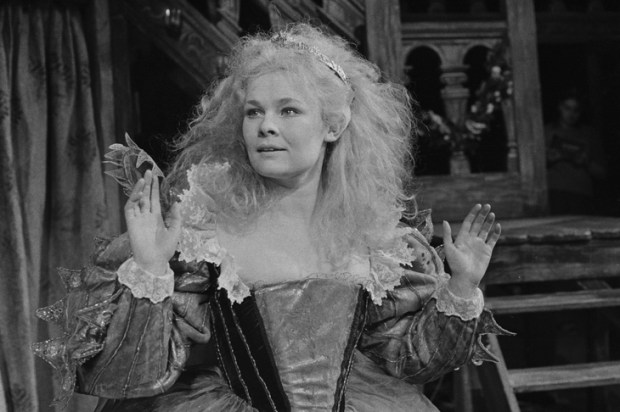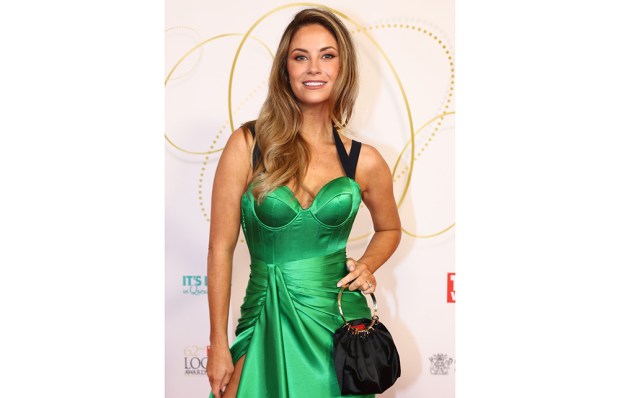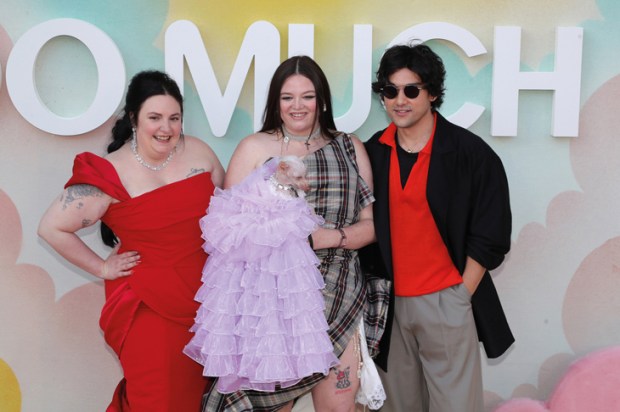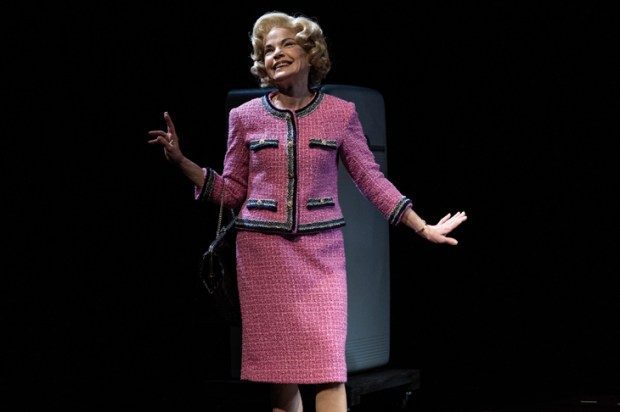Simone Young conducted Mahler’s Third at the Opera House on Wednesday 19 February and with its dense lyricism, its lush choric work and its evocation of the grandeurs of mood swings and the celebration of nature at its most soaring, it was an appropriate vehicle for the woman who has made the Wagnerian moment and its grand crescending aftermath in Strauss and Mahler into her speciality.
In any case, she went on to become the first woman and the first Australian to conduct Wagner’s Ring at Bayreuth. In fact the one-time apprentice of Daniel Barenboim did the Ring Cycle twice. And just at the moment she’s preparing to conduct the central opera of the Ring, Die Walküre at the most glamorous of all opera houses, La Scala in Milan.
There’s no doubting the dramatic intensity of the repertoire Simone Young has made her own and how congruent it is with the Sturm und Drang of the German genius.
And this unique quality is there in those lieder cycles Schubert composed like lost dramas in the lyric mode. We tend to associate them with the quicksilver lightness and dramatic range of Dietrich Fischer-Dieskau but it’s also true that Die Winterreise, the most starkly sombre of the song cycles, will repay a heavier, deep black, baritonal soundscape in the manner of the great Hans Hotter, that superb and shattered Wotan of some of the greater versions of the Ring. Die Winterreise is one of those works which can freeze the ravens in the branches of the trees and there’s the chance to hear one of the greatest contemporary interpreters of this almost terminally melancholic work which is being performed at Melbourne’s Recital Centre by the baritone Matthias Goerne with Daniil Trifonov at the piano on 1 April.
All of which may seem a long way from Invisible Boys which is an extraordinarily vibrant drama about gay teenage boys in Geraldton, Western Australia, at the time of the gay marriage plebiscite. The series has an extraordinary amount of sex, much of it masturbatory, but it is all done with great vividness and poignancy and everything is represented in terms of the longing that is so central to these uncontrollable bursts of physical desire.
The reality of adolescent wanking is done with a startling brilliance which will command the sympathy of the young even if it makes their elders’ hair stand on end. It helps that the main character Charlie who has dyed blue hair is played by a superlative actor Jo Cumpston and there’s also an indigenous guy who yearns to be in the AFL draft and just as you think it’s getting a bit young adult and soapy there’s a starkly powerful representation of what happens to the young farmer who Charlie is in love with and who is always backing off for all his tenderness.
The upshot is utterly rich and strange even as it plays on intimacies you never expected to see on a small screen. At one point the mother of one of the boys – played by Pia Miranda – is appalled that her charming plump son is watching smut like Holding the Man; everyone knows the Church has ruled that this is an awful sin.
There’s a sane priest at the local Catholic co-ed high school who says the Church has moved on, no one is going to punish homosexuality but if our hero doesn’t dye his hair back to its natural colour he’ll get detention.
This is breathtaking television comparable to the long-ago first season of Heartbreak High or to the bruised feeling-laden truth of the best of Sonya Hartnett’s fiction. Invisible Boys is based on the novel by Holden Sheppard but as with Boy Swallows Universe it is so sharply focused and sweepingly imagined that television seems its natural metier.
That glimpse of Pia Miranda as the pious Italian-Australian mum brought back memories of her in the past and that coincided with the news that Matthew Lutton was leaving the Malthouse which seemed an appropriate time to wonder about successors. A couple of decades ago before she took over the Black Swan company in Perth and then subsequently became the head of Nida, Kate Cherry was the associate director of the Melbourne Theatre Company and she had the quality – much rarer than it should be – of knowing how to cast.
She did a production of Tennessee Williams’ The Glass Menagerie in which Pia Miranda played Laura, the girl with the glass miniatures in a production which had Gillian Jones as the mother and Ben Mendelsohn as Tom, the brooding brother, Tennessee’s alter ego. It compared very well with a London production with Jessica Lange as Amanda and Ed Stoppard as the roaming future dramatist seen a few years later.
And that’s true of Kate Cherry’s Sweet Bird of Youth with Guy Pearce and Wendy Hughes – or switching to Albee – the production she did of The Goat. Cherry’s husband Kenneth Ransom was superb in the baseball play Take Me Out in which he was naked at one point and then there was Sigrid Thornton’s Blanche in the Black Swan Streetcar – a much more classical production than the recent one from Anne-Louise Sarks where the very talented Nikki Shiels had to battle with a not very coherent dramatic conception. And the list goes on. It was Kate Cherry who gave Richard Piper the acting opportunity of his life when she cast him in Hannie Rayson’s Life After George. In the last stretch we have seen Sarah Goodes – who did not inherit the MTC as she might have – direct with great traditional flair the revival of Who’s Afraid of Viriginia Woolf? with Kat Stewart and David Whiteley but this was very much in the Kate Cherry tradition.
She has more in common with Neil Armfield than is generally admitted. Some old hands of the theatre world would vote for her tomorrow given the chance.
One of our finest actors Peter Cummins who has had no obituary in the press understood the complexity of our theatre culture. The man from Colac who created the role of Monk O’Neill in Hibberd’s A Stretch of the Imagination and the old bastard of a cop in Williamson’s The Removalists began his theatre career working as a plumber by day and then at night as the stage manager for visiting stars like Gertrude Lawrence, the legendary stage partner of Noël Coward and the original Anna in The King and I.
Got something to add? Join the discussion and comment below.
You might disagree with half of it, but you’ll enjoy reading all of it. Try your first month for free, then just $2 a week for the remainder of your first year.













